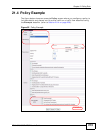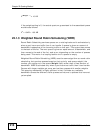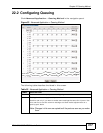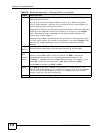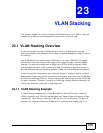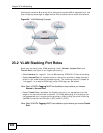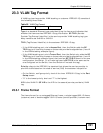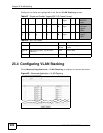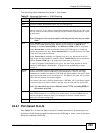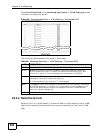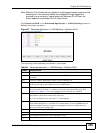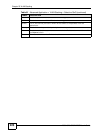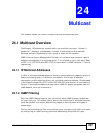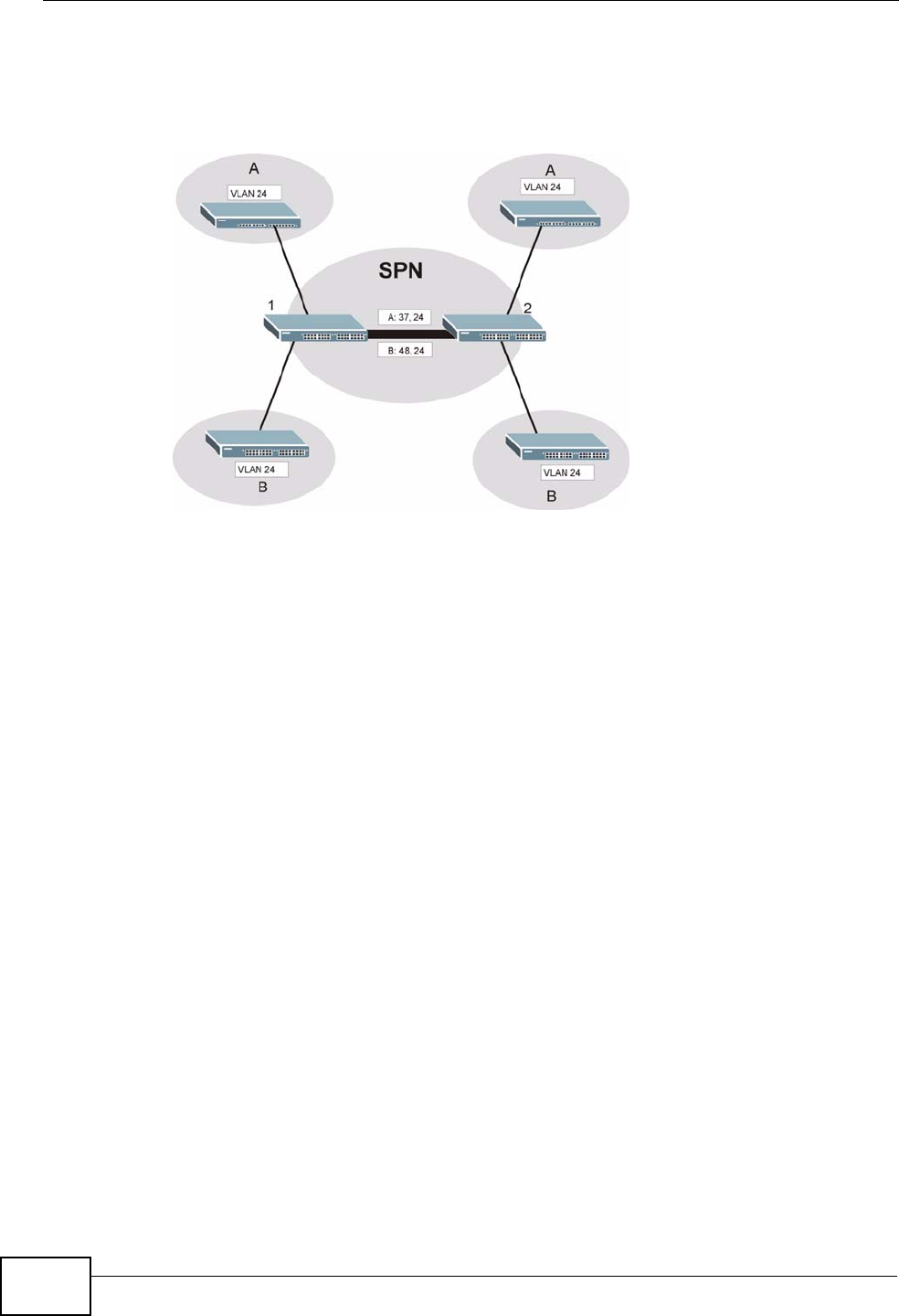
Chapter 23 VLAN Stacking
XGS-4526/4528F/4728F User’s Guide
220
distinguish customer A and tag 48 to distinguish customer B at edge device 1 and
then stripping those tags at edge device 2 as the data frames leave the network.
Figure 94 VLAN Stacking Example
23.2 VLAN Stacking Port Roles
Each port can have three VLAN stacking “roles”, Normal, Access Port and
Tunnel Port (the latter is for Gigabit ports only).
• Select Normal for “regular” (non-VLAN stacking) IEEE 802.1Q frame switching.
• Select Access Port for ingress ports on the service provider's edge devices (1
and 2 in the VLAN stacking example figure). The incoming frame is treated as
"untagged", so a second VLAN tag (outer VLAN tag) can be added.
Note: Static VLAN Tx Tagging MUST be disabled on a port where you choose
Normal or Access Port.
• Select Tunnel Port (available for Gigabit ports only) for egress ports at the
edge of the service provider's network. All VLANs belonging to a customer can
be aggregated into a single service provider's VLAN (using the outer VLAN tag
defined by the Service Provider’s (SP) VLAN ID (VID)).
Note: Static VLAN Tx Tagging MUST be enabled on a port where you choose Tunnel
Port.




